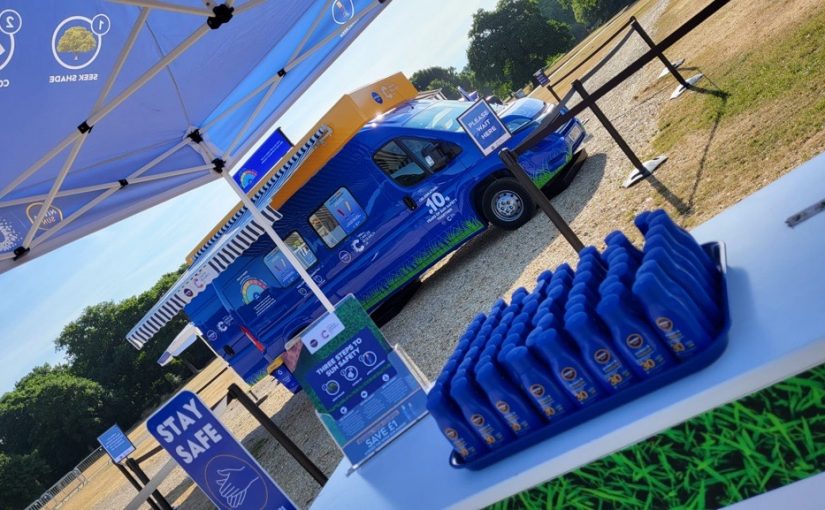Retailers love data. Like, really love it. And they’re good at collecting it. The best of them have in-house data teams and analysts and proprietary business intelligence tools. They track everything from queue times to price-change effects to how weather impacts sales—all to predict what customers will need or want at a particular location, hopefully before customers know it themselves.
“I learned a long time ago not to try to teach a retailer how to use data for retail,” says Meshh CEO Caroline McGuckian. “Just give them what they need. We do one thing well and provide it in a format that is eminently usable.”
What Meshh does better than anyone in spatial analytics is measure at scale how consumers interact with physical spaces. That’s thanks to an agile system that slots in neatly as one part of a tech stack coupled with years of learnings across verticals.
From football games to food trucks, storefronts to shopping malls, Meshh has its clients covered. Let’s look at four examples.
Planning Physical Spaces
It’s an industry given that the nature of retail is changing. Brands are questioning their footprints and, literally, the physical shape of their assets. But how are they to know what works and what doesn’t?
Understanding customer footfall patterns, movements through stores and dwell time surely helps. And with Meshh, those are easy. Give them a few locations and a month and they’ll report back with data on which layouts are most effective based on client goals.
“It’s not a big infrastructure play, it’s not overly complicated,” says McGuckian. “We can literally put some sensors into a couple of different types of stores and tell you that, in one, customers move through it this way and in another they move that way.”
Pop-Up Retail
By its very nature, pop-up is transient. It doesn’t have infrastructure—it’s quick and temporary. Shop Lite. For retailers using any physical space that isn’t their own tricked-up brick-and-mortar asset, getting the type of information they rely on is hard.
But transient is Meshh’s forte. “Because we are a very standalone proposition, we don’t need to integrate with pre-existing Wi-Fi, pre-existing cameras, pre-existing anything,” says McGuckian. “We can and do deliver on pop-up retail experiences across the globe.”
Whether testing a market, comparing locations or tracking conversion rates, selling from a storefront, a booth or out of the back of a van, “pop-up retail is the new black,” says McGuckian, “so we measure it, too.”
Concessions
There’s a significant difference between pop-up retail and concessions: the latter comes with a captured, quantifiable clientele. But just because people are there, and you knew they’d be there, doesn’t mean you’re guaranteed sales.
If 1,000 people walk by your concession and only 200 stop, how can you increase that number? “Should you have three locations in different areas or one larger shop,” asks McGuckian. “How many different touch points do you have with that consumer? Should you be doing something visual at the front door? Do you need new messaging?”
With Meshh’s expertise as a starting point and its systems measuring any or all of those and more, clients create a comprehensive strategy to maximize event ROI.
Shopping Centers
Not all retail is about individual stores. Mall operators work with multiple brands on customer engagement, location, promotions and more. Some areas of the mall are going to have less traffic than others, but with Meshh in the mix, that can be addressed.
“We have used signage to drive footfall,” says McGuckian. “We look at parts of the mall that are quieter and feed that back into the digital OOH system to trigger messaging to change behaviors.”
Knowing where customers are means you can direct them elsewhere, like to a store having a sale or a food court at low capacity.
If you need a simple, scalable way of collecting visitor behavior data in any physical space, we’d love to hear from you and you can follow us here on linkedin for updates.














